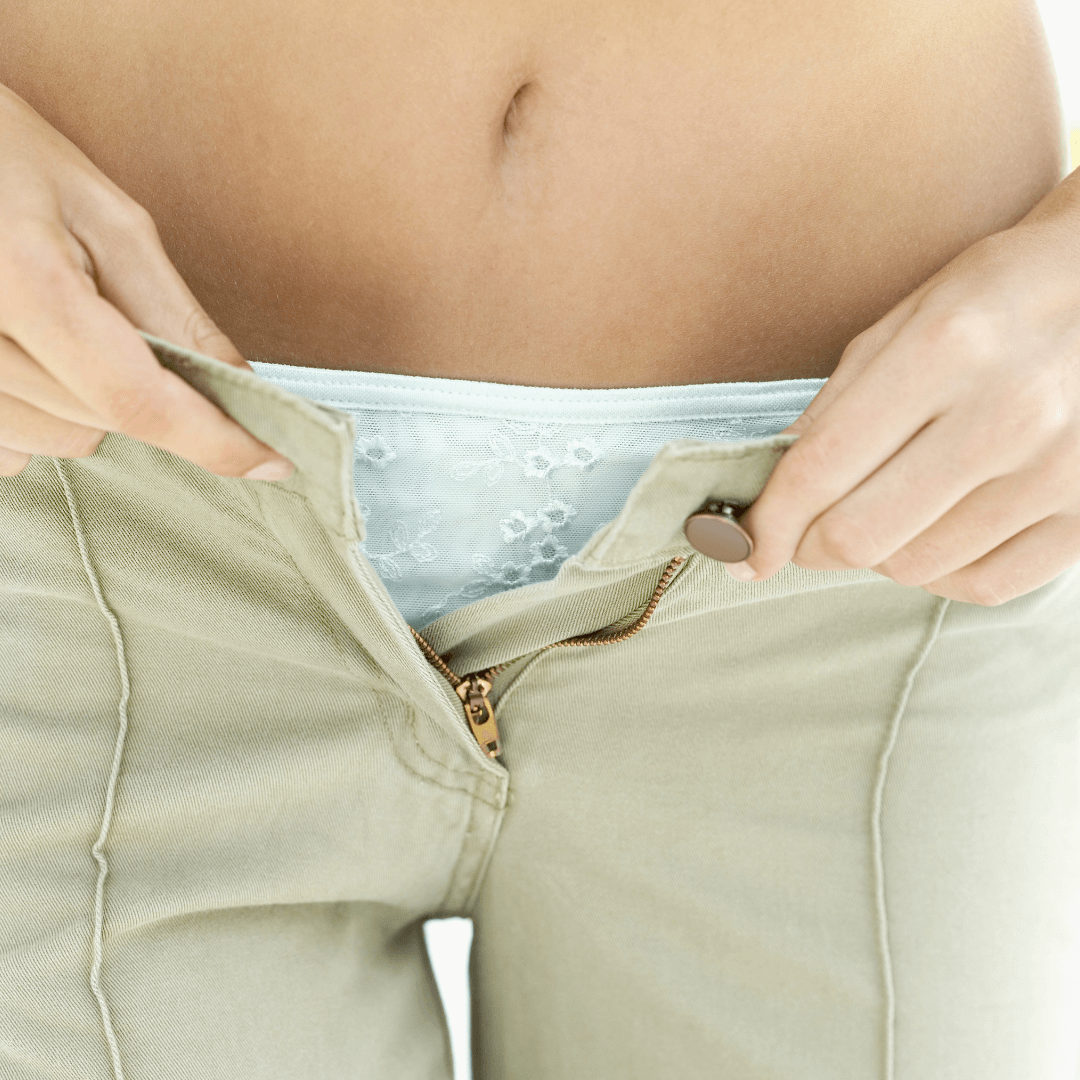Throughout life, your body changes a great deal.
When it comes to menopause, sadly many of these changes are no fun at all.
One of the menopause symptoms you might be learning to live with during this time of your life is vaginal dryness. Some common symptoms of vaginal dryness include:
- Irritation
- Burning
- Pressure in the vaginal area
- Light bleeding during or after intercourse
- Painful intercourse
- Discomfort in the vaginal area (1)
If you are experiencing any of these problems, read on as we explore this annoying condition and show you how to make it better.
How The Vagina Lubricates Itself
For most women, the vagina always contains fluids of some sort. These fluids differ depending on where you are in your monthly cycle. The fluids present in your vagina when you are near your monthly flow are not the same as the fluids present when you are aroused or during intercourse.
These fluids also vary from woman to woman, and no two will experience the exact same amount, colour, or frequency of vaginal fluids. Generally, this difference has nothing to do with vagina health.
As women, we all know whether we are experiencing wetness down there, but many of us have no idea how this happens. Would it surprise you to know that your vagina lubricates itself? Well, that’s exactly what happens.

Near your cervix, there are several hundred glands that produce a natural lubricant for your vagina. The lubricant made here is a mucus-like liquid. The moisture from this lubricant makes a slow descent from the cervical area, passing through the vagina. As it does this, it not only lubricates the vagina to keep things moist, but this lubricant is also cleaning your vagina by gathering dead skin cells and other things that no longer belong.
Beyond this, the fluids in your vagina contain antimicrobial elements that work to maintain your vagina health by fighting off unwanted types of bacteria. (2)
The way your vagina lubricates itself during arousal is a bit different, though. In addition to the continual lubrication inside your vagina, there are other glands that work to make intercourse a more comfortable experience.
Near the urethral opening, there are small glands called Skene glands. When you are aroused, these glands produce additional mucus. (3)
The Bartholin glands can be found on either side of your vaginal opening, and they too produce mucus to lubricate the vagina for intercourse. During arousal, blood quickly flows to the vagina. When this happens, the blood vessels become engorged and pressure is increased, resulting in liquid seeping into the vaginal walls from the swollen blood vessels. This also creates the wetness you feel during intercourse. (4)
How Do Your Hormones Affect Vaginal Dryness?
Many things can affect whether your vagina is properly lubricated or not, and one thing that plays a significant role in this is your hormones.
As you know, your hormones are all over the place when you are going through menopause, so it stands to reason that the lubrication of your vagina would be affected by this change. One common menopause symptom is vaginal dryness.
As your body prepares to enter menopause, your levels of estrogen drop drastically.
This drop in estrogen causes a decline in your vaginal lubrication, and it also makes the tissues in your vagina become drier and thinner. These issues build upon one another resulting in vaginal dryness during menopause. (5) (6)
Stress also plays a role here as your body releases stress hormones. These hormones can wreak havoc on your vaginal fluids. It doesn’t matter if you are stressed about work, or about going through menopause, the result is the same dryness. Lack of blood flow to the vagina will result in it not being lubricated sufficiently which will cause you discomfort and pain.
Other external factors can also influence your vagina’s ability to lubricate itself.
Things such as medication, irritants from soaps or shampoos, and of course not being aroused enough before intercourse can all contribute to the problem.
How Can It Be Treated?
There are many options for treating vaginal dryness.
One of the most common approaches is to use a personal lubricant you can buy over the counter at any drugstore or pharmacy. These lubricants are silicone, oil or water based. These are intended more for intercourse than as a solution to a long-term problem with vaginal dryness, though.
There are also moisturizers that help to reintroduce water into your vaginal tissue and can generally give you a few days of relief. (7)
Your doctor can prescribe hormone therapy to help alleviate this problem. This type of relief can be found in patches or sprays, or in pill form. The patches and sprays are most popular.
Vaginal dryness is one menopause symptom that can usually be easily treated and important to your vagina health, so keep these simple tips in mind.
Preparing For Intercourse
When you experience vaginal dryness, it’s important to prepare yourself properly for intercourse.
Most women find intercourse is more enjoyable when there is more moisture present. (8)
You and your partner can use a personal lubricant to help bring moisture to the area. As stated earlier, there’s no shortage of choice.
Try to relax and not get stressed out about the situation at hand.

Go slow. No need to rush things now.
Foreplay is going to be more important than ever. It might take a little longer to get to where you are going, but it’ll be a whole lot more comfortable if you and your partner take time to get warmed up!
REFERENCES
- https://www.everydayhealth.com/vaginal-dryness/guide/
- https://www.ncbi.nlm.nih.gov/pubmed/12237628
- https://www.merckmanuals.com/home/women-s-health-issues/noncancerous-gynecologic-abnormalities/skene-duct-cyst
- https://www.emedicinehealth.com/bartholin_cyst/article_em.htm#what_is_bartholins_cyst
- https://www.ncbi.nlm.nih.gov/pmc/articles/PMC3823936/
- https://www.mayoclinic.org/diseases-conditions/vaginal-atrophy/symptoms-causes/syc-20352288
- https://www.medicinenet.com/vaginal_dryness_and_vaginal_atrophy/article.htm#what_is_the_outlook_for_vaginal_dryness_and_vaginal_atrophy
- https://www.ncbi.nlm.nih.gov/pubmed/23211029




